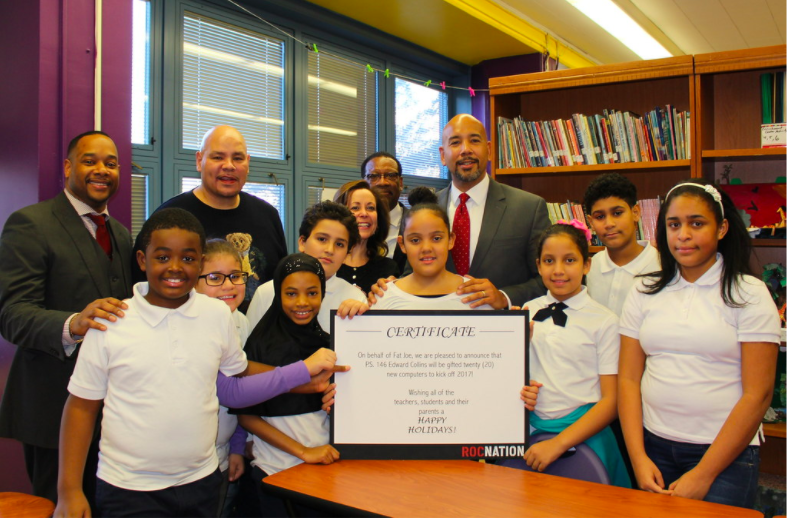Among society’s most pressing challenges is the quest to mold the younger generations of today into the leaders of tomorrow. Through many methods and techniques (standardized tests, classroom competitions, ranking based on value as a human being) schools have finally designed the perfect system in which gifted students in grades K-3 are able to claw and climb their way above the others to their rightful place at the top of the hierarchy, at which point their rank for the next 9-12 years is secure.
The new system — which many school board leaders, PTSA moms, and parents of gifted students have been calling “early harvesting”– has been incredibly successful in building a tensely competitive atmosphere in the classroom, where the Ungifteds work endlessly to earn the right to the one unfilled seat among the Gifteds.
The secret that makes the system function so beautifully is that there is, in fact, no empty seat among the Gifteds. The barrier between the two classes is unbreakable, so much so that even the teachers of the classes do not make eye contact. The Ungifteds’ teacher must look down at the ground, while the Gifteds’ teacher turns up his or her nose and looks straight ahead. However, by leading the Ungifteds to believe they have a shot at being valued in society, they work tirelessly to learn well and become excellent students, which will make them highly qualified to work minimum wage jobs as adults.
The atmosphere in the Gifted classroom is, unsurprisingly, a stark contrast to that of their inferiors. The small elite community of six year olds will remain a tight-knit group for the remainder of their education and will then work together in their careers. Having already proven their intellectual and therefore overall superiority in their times tables assessments, the students are given unique AIG (Academically or Intellectually Gifted) assignments that engage and entertain them without forcing overexertion of their brain power. These assignments include activities such as brain teasers, riddles, coloring, and watching movies.
In a Q&A session, Neil Goldwater, principal at Rainbow Smiles Elementary School shed more light on the process, benefits, and implications of early harvesting.
Q: Do you believe that early harvesting is an effective way of preparing students for their future in society?
A: Yeah.
Q: As a Gifted child, what was your experience like?
A: Pretty cool.
Q: Do you believe that the treatment of Ungifted children is fair?
A: Yeah. Survival of the fittest.
Q: Do you believe that Ungifted children should have a chance at joining the Gifted?
A: If they were meant to be one of the chosen ones their eliteness would’ve shown through during their times tables assessments.
Q: Have you ever studied before?
A: Huh?
Q: How did you become principal of Rainbow Smiles?
A: After I graduated I sent my times tables assessment score from first grade (I finished the whole page in 16 seconds) to a bunch of different places and I got in here and I wanted to work here and yeah.
Q: What does the future of early harvesting look like?
A: Well the government people are making this database called the Gifted Vault where like once the first graders take their benchmark stuff and times tables assessments and read some stories all that goes in the Vault. Then employers can see it immediately and it is easy for anyone to see it. For the rest of that student’s life. And we are thinking that probably employers will contact the students while they are still in maybe for example third grade. And they will say your job here is guaranteed once you graduate if you want and then if they want they say yeah.
In a separate Q&A, Ungifted citizen and bus driver Ellen Watkins provided details about her life as an Ungifted member of society, as well as her experience with the early harvesting system.
Q: What was your experience like in school?
A: Similarly to my Ungifted peers, I spent twelve naive years pushing myself to read, study, write, research, and learn to the best of my ability. It was a difficult and emotionally torturous experience. I slaved away to gain an education that wasn’t even beneficial to society in the end. Knowledge of English grammar, biological processes, or politics is simply useless in today’s day and age. My chances of being among the gifted ended on the 17th second of my times table assessment.
At this point in the Q&A, Watkins had to drive the bus to the next stop in order to remain on schedule and was unable to answer any further questions.
The quest to build a brighter future and identify tomorrow’s leaders may finally be successful.
In a survey, 99.7% of Gifteds approved of the early harvesting system. The best of our youth are finally having the opportunity to prove themselves and secure their rightful place in society.

Hi! My name is Jannah and I am a senior editor and multimedia editor for The Mycenaean. I am also a math tutor, engineering intern, and a tennis player.

Leave a Reply